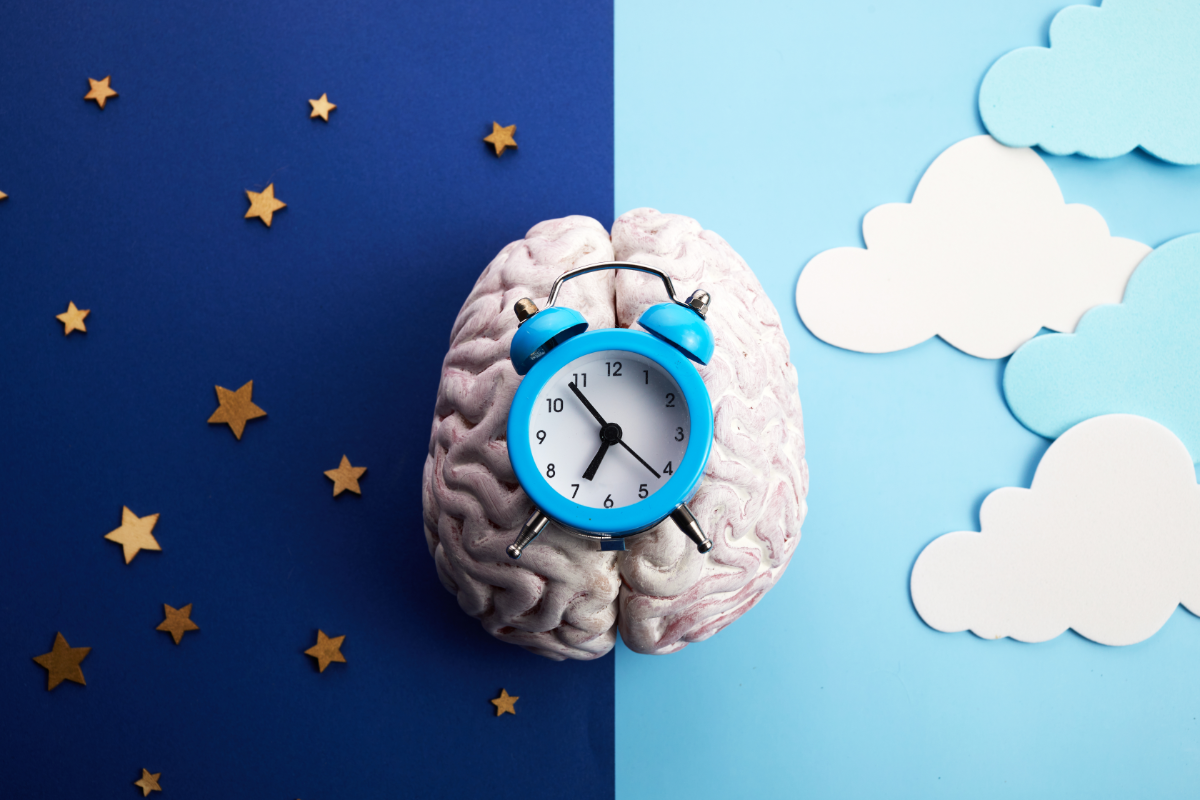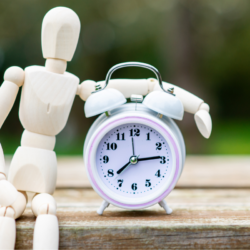Insomnia is a modern scourge. At a time when we all want to make the most of every moment, lack of sleep can seem to get in the way of our ambitions. That’s where melatonin comes in, our precious ally in the quest for perfect rest. Let’s find out together what’s behind this mysterious compound.
Melatonin is a hormone produced by the pineal gland, a small gland located in the centre of the brain. Its main function is to signal to your body that it’s time to rest. Its role is crucial in regulating our internal biological clock, or sleep-wake cycle.
Melatonin production: a natural cycle
Melatonin, produced by the pineal gland in the brain, is intimately linked to our natural cycles of light and darkness. Its rate of production and release fluctuates throughout the day, in response to the light intensity of our environment. This light regulation of melatonin is essential for keeping our internal biological clock, or circadian rhythm, synchronised with the 24-hour cycle of the day.
The influence of light on melatonin production
In the absence of light, our bodies begin to produce more melatonin. When the sun goes down and light diminishes, the pineal gland receives the signal to start producing melatonin. Melatonin levels in the blood then rise, making us feel drowsier and preparing us for sleep. This is why it is often more difficult to fall asleep in a bright environment.
Daylight and reduced melatonin production
With the arrival of daylight and the increase in light, melatonin production decreases. This signals to our bodies that it’s time to wake up and start the day. This reduces the feeling of drowsiness, making us feel more alert and energetic. This is why we generally feel more awake and alert during the day.
Disruption of the natural sleep hormone production cycle
It’s important to note that our melatonin production cycle can be disrupted by a number of factors. Exposure to artificial light at night, particularly the blue light emitted by electronic devices, can trick our brains into thinking it’s still daylight, delaying melatonin production and making it harder to fall asleep. Similarly, jet lag or night sh ifts can throw our internal biological clock out of sync, leading to melatonin production at inappropriate times. That’s why it’s crucial to maintain an environment and schedule that respect our natural melatonin production cycle as far as possible.
The role of this hormone in sleep
Melatonin, often referred to as the sleep hormone, plays a crucial role in our resting process. Its production and role are directly linked to the cycle of light and darkness, a rhythm to which our bodies are intrinsically linked.
Sleep inducer
Melatonin is widely recognised for its ability to help us fall asleep. In fact, our bodies start to produce more of this hormone as daylight fades, signalling to our bodies that it’s time to prepare for sleep. This increase in melatonin helps us feel sleepy and ready for a good night’s rest.
Maintaining quality sleep
As well as simply helping us to fall asleep, melatonin also plays a crucial role in maintaining quality sleep throughout the night. Melatonin helps to promote deeper, more restorative sleep, allowing our bodies to rest and regenerate effectively.
Regulates body temperature, blood pressure and hormone levels
Melatonin does more than induce and maintain sleep. It is also involved in regulating various physiological processes, including body temperature, blood pressure and hormone levels. These processes are all linked to our sleep cycle and contribute to a healthy, restorative night’s sleep.
Melatonin and sleep disorders
Understanding the role of melatonin in sleep is a crucial first step in treating sleep disorders. Insomnia, in particular, is often linked to an imbalance in melatonin levels.
Melatonin and insomnia
Insomnia is one of the most common sleep disorders, characterised by difficulties in falling asleep or staying asleep. Many factors can contribute to insomnia, including stress, anxiety, depression, certain medications and, of course, an imbalance in melatonin levels. Melatonin, as a sleep hormone, can play a crucial role in the treatment of insomnia. Studies have shown that taking melatonin supplements can help reset the body’s internal clock, which can improve sleep quality in people suffering from insomnia.
By regulating the sleep-wake cycle, melatonin can help reduce the time it takes to fall asleep, increase total sleep time and improve sleep quality. However, it is important to note that although melatonin can be an effective tool in the treatment of insomnia, it is not a one-size-fits-all solution and should only be used after consulting a healthcare professional.
Melatonin and jet lag
Jet lag is another common sleep disorder linked to sudden changes in time zones. Melatonin can help reduce the symptoms of jet lag by helping to reset our internal body clock.
FAQ
Is melatonin safe to use? Melatonin is generally considered safe for short-term use. However, it is important to consult a healthcare professional before starting to take melatonin supplements.
Can melatonin help me sleep better? Yes, melatonin can help improve the quality of sleep, particularly for those with sleep disorders such as insomnia or jet lag.
Can I take melatonin if I’m pregnant or breast-feeding? It is best to consult a healthcare professional before taking melatonin if you are pregnant or breast-feeding.
Melatonin is a key player in our sleep, playing a crucial role in regulating our biological clock. Although melatonin supplements can be beneficial, it is crucial to understand how they work and their potential risks. With the right understanding, melatonin can become a valuable tool for improving our sleep and, by extension, our quality of life.
References
- https://www.nccih.nih.gov/health/melatonin-what-you-need-to-know
- https://pubmed.ncbi.nlm.nih.gov/32770854/
- https://pubmed.ncbi.nlm.nih.gov/26692007/
- https://pubmed.ncbi.nlm.nih.gov/26414986/
- https://pubmed.ncbi.nlm.nih.gov/28648359/





